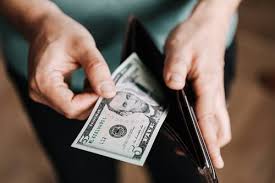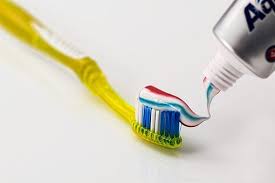
How to Stop Spending Money: 19 Things You Should Do Right Now
If you asked a lot of people today, many of them cannot account for the things they spent their money on.Think about it: ”Do you have an exact breakdown of the things you spent your money on yesterday or even today?”
A lot of people have this problem. Usually, the way people approach spending is to spend when they have money and to starve when they don’t. This approach mostly make people go broke.
Here are a few things that you can do to prevent spending money without denying yourself a happy life:
Note: These tips were inspired by my own experience and from collated information from online articles and forums.
19 Things You Should Do Right Now to Stop Spending Money
1. Create a Budget2. Give Every Dollar a Job
3. Always Shop with an Expense List
4. Use Cash as Much as You Can
5. Minimize Spending Temptations
6. Avoid Vices
7. Minimize Needless Subscriptions
8. Take Your Time in Buying
9. Do Price Comparisons
10. Beware of False Economy
11. Reuse as Much as You Can
12. Stay Away From Many Brand Names
13. Cook and Do Things Yourself
14. Make Money Hard to Access
15. Like Free or Frugal Activities
16. Take the “No Spend Challenge”
17. Educate Yourself Freely
18. Seek Advise For Your Spending Habits
19. Use Bonuses Wisely
Final Words
The Details:
1. Create a Budget
 Before you can prevent spending money, you must first know how your money is currently being allocated.
Before you can prevent spending money, you must first know how your money is currently being allocated.
After this, you need to know which spending costs you should add to and lessen. Usually, when a budget is made, not all a person’s money is allocated towards expenses, some are allocated towards savings.
That is the beauty of a budget, it means making your money fit your expenses without going broke.
If you are already have a budget but still end up broke, you might have a problem with the way you budget or you simply don’t have enough money for your current expenses.
The solution to this of course is to revise your budget so much so that your money is enough for your expenses.
Having a budget also means knowing that you would have to earn more to suit your lifestyle without starving.
Back To Summary List
2. Give Every Dollar a Job
 There are a lot of people who earn well above their lifestyle who think that they don’t have to reign in on their spending because their money is more than enough for their lifestyle.
There are a lot of people who earn well above their lifestyle who think that they don’t have to reign in on their spending because their money is more than enough for their lifestyle.
But when you think about it, there is an almost never ending need for money. Simply put, for most people, there is never enough money for all their needs.
For example, there are people who save money regularly because their lifestyle permits it. This same people could be saving but don’t have insurance, a car, don’t go to the doctor and so on.
So, their alleged money surplus is not true. Don’t be these people. Give a job for every dollar that you earn.
If you have excess money at the end of the day, you can for example put this money to work as a savings for your retirement, home repairs, insurance and so on.
When you do this, you’ll realize that you really have no excess money lying around but actually have a money deficit that you just realized now. This would make a you think twice before spending your “alleged” excess money.
Back To Summary List
3. Always Shop with an Expense List
 The same with a budget, don’t forget to always have an expense list when you go to the grocery, supermarket or mall. Even when you shop online, have an expense list.
The same with a budget, don’t forget to always have an expense list when you go to the grocery, supermarket or mall. Even when you shop online, have an expense list.
By having an expense list, it not only saves you shopping time but it also helps you to see how much money you are spending in ”totality” which would make you realize that you’re actually spending a lot more money when you go shopping.
You might say for example that you only bought a shirt when you went shopping, but this doesn’t include your transportation, dining and even entertainment cost. When you add these seemingly small costs, you’ll realize that you are actually spending more than you intended.
You might think that you are not spending much when you go shopping online, but the transportation cost and all other costs are added in your purchase cost.
Even the simple act of buying your groceries in one go would make you realize the big money you are spending in groceries. Buying “piecemeal” gives you the false illusion that you are not spending much money. Avoid this as much as you can.
Back To Summary List
4. Use Cash as Much as You Can
 In many parts of the world, especially in developing and poor countries, cash is still king. Many developed countries are trying to get rid of cash for physical transactions because it is allegedly not to be hygienic and have links to crime.
In many parts of the world, especially in developing and poor countries, cash is still king. Many developed countries are trying to get rid of cash for physical transactions because it is allegedly not to be hygienic and have links to crime.
But digital money transactions have surcharges that can add up to your costs. Even banking transactions have surcharges.
This might seem like small costs only but they can easily add up. Also, bank cards like credit cards have the psychological effect of making us carefree with our spending because we don’t actually see physical money flowing out of our wallets, all we see is plastic card that is swiped.
You would more than likely not mind it if you spent USD 1,000 and paid by credit card, but you would think twice of spending for something if you paid for it in USD 1,000 cash.
Also, we have to talk of digital theft which is rampant today. You could end up losing you entire savings if a scammer/hacker gets a hold of your electronic banking details.
Back To Summary List
5. Minimize Spending Temptations
 Many people spend their lives today glued to their computer or smartphone screens. People are bombarded by ads each day telling them to buy, buy, buy…
Many people spend their lives today glued to their computer or smartphone screens. People are bombarded by ads each day telling them to buy, buy, buy…
We can add television, radio, newspapers, magazines, billboards, posters, celebrity endorsements and so on. It seems that everywhere you turn, there is something that is advising you to buy something. But you can combat this using the following:
5.1 Minimize your social media and internet interaction:
These two digital mediums contain a lot of ads which can be presented so cunningly that you actually think the ad is not an ad.
5.2 Don’t shop to feel better:
There are advertisers and their product endorsers who encourage consumers especially women to shop because it allegedly relieves stress: aka ”shopping therapy” or ”retail therapy”.
But there are other ways to remove stress like meditating, exercising, playing sports, watching entertainment, talking to someone, and so on.
You don’t have to shop to relieve stress. On the contrary, if you have little money, shopping causes more financial stress than relief.
5.3 Resist Sales:
Shops conduct sales when they can’t sell enough of the products that they are selling. Though it might sound like an opportunity for you the consumer to get a good deal from the shops, think first: “Is the product on sale really useful to me or it would just end up in the cabinet?”
A product even a product on sale is a bad buy if it has no genuine use to you. The very reason a product might be on sale is because it is useless.
5.4 Understand Your Spending Triggers
Understand your buying behavior. Are you more likely to splurge in the morning, noon, afternoon or evening?
If for example you tend to splurge during evenings, avoid shopping in the evening. The same goes for your environment. Can’t you help going inside a mall when you see one? Then avoid places with malls.
Do you tend to splurge when you are happy? Then learn to curb your spending whenever you are happy by being aware of this spending weakness of yours.
Do you get envious whenever you know someone bought something new? Realize that this feeling will never end because everyone continually buys. Accept this reality so you don’t feel compelled to buy whenever you know someone who do.
Keep a simple lifestyle and friends where possessions is not the measure of happiness. This not only reduces your financial stresses, but leaves you with more genuine friendships.
Back To Summary List
6. Avoid Vices
 Vices such as smoking, drinking and even drugs taken to the extreme can not only ruin you financially, but ruin your entire life.
Vices such as smoking, drinking and even drugs taken to the extreme can not only ruin you financially, but ruin your entire life.
Usually, vices are the result of people succumbing to peer pressure from the wrong people. The medical community as well as real life experiences have shown that vices such as smoking, drinking and drugs have nothing positive to contribute to one’s health.
Spending money on vices is not only the same as burning money, but is also the same as destroying your health.
Back To Summary List
7. Minimize Needless Subscriptions
 In the old days, people only subscribed to essential things in life like electricity, water and gas. But today, the business community has also been able to convince consumers that they need to subscribe to products and services that are not essential in their life.
In the old days, people only subscribed to essential things in life like electricity, water and gas. But today, the business community has also been able to convince consumers that they need to subscribe to products and services that are not essential in their life.
While there is nothing wrong in subscribing to as many subscriptions products if you have a lot of excess money, there are people whose subscription payments are better spent somewhere else, like a college fund for their kids.
As society moves forward, there is more and more non-essential subscription products being marketed to consumers. Make sure that you are wise enough to know which subscription products you really need.
Back To Summary List
8. Take Your Time in Buying
 Often when you window shop whether in malls or online, you see a product that makes you instantly want to buy it.
Often when you window shop whether in malls or online, you see a product that makes you instantly want to buy it.
Different people have different desires, marketers just need to know which one matches to a particular buyer.
That is why e-commerce platforms use computer algorithms to trigger a consumer’s buying impulse. In essence, it is a battle between the consumer and the marketers.
But this is a battle where the consumers have the upper hand because they hold the money that marketers want.
So, don’t surrender this power immediately. Make sure that the marketer deserves the money they are getting.
There have been consumers who delayed purchasing a product they really want initially and after their delay, they eventually realize that they don’t really need the product.
That is why many marketers trick consumers which such sales slogans as: “50% off for the first 100 buyers only” or “Only 100 units left”. They want you to forget your purchasing power as a consumer. Be aware of this.
Back To Summary List
9. Do Price Comparisons
 Many marketers capitalize on a consumer’s impulse buying behavior as well as on their laziness. This is the reason why marketers located in high foot traffic areas sell the same product as the other marketers in the vicinity at a higher price.
Many marketers capitalize on a consumer’s impulse buying behavior as well as on their laziness. This is the reason why marketers located in high foot traffic areas sell the same product as the other marketers in the vicinity at a higher price.
This is because they know that once a consumer’s buying impulse is triggered, they are not likely to shop around anymore for a much lesser price than the one being shown to them currently.
Always shop around although it might mean a few more effort and time. This gives you the peace of mind that you made the best buying decision.
Back To Summary List
10. Beware of False Economy
 There are consumers whose buying decision are only based on price alone. They’ll buy the cheapest product just for the mere fact that it is the cheapest and nothing more.
There are consumers whose buying decision are only based on price alone. They’ll buy the cheapest product just for the mere fact that it is the cheapest and nothing more.
But there is a danger to buying the cheapest product only without consideration for quality. The cheapest product might break down easily causing you to spend more than you actually intended if you have just bought a more quality but a slightly more expensive product.
Back To Summary List
11. Reuse as Much as You Can
 Making things last than they normally do makes you spend less money. For example, making sure that you tightly squeeze a toothpaste to the last drop lessens your toothpaste spending.
Making things last than they normally do makes you spend less money. For example, making sure that you tightly squeeze a toothpaste to the last drop lessens your toothpaste spending.
The savings you get per unit might not be a lot, but the collated savings in the long run could really add up.
For example, eating last night’s leftovers for breakfast regularly reduces your meal costs by a third.
Back To Summary List
12. Stay Away From Many Brand Names
 This does not mean that you have to buy counterfeit products which is bad and actually illegal in some countries. Rather, it is buying a product for its quality and not its brand name.
This does not mean that you have to buy counterfeit products which is bad and actually illegal in some countries. Rather, it is buying a product for its quality and not its brand name.
Also, how sure are you that the brand name product you bought at an expensive price is not a counterfeit itself or is of low quality?
Realize also that you are likely to attract unwanted attention from envious people and even criminals if you buy expensive branded products.
Back To Summary List
13. Cook and Do Things Yourself
 Food is one of the highest but essential expense of everyone. But a lot of people don’t want to cook just like they don’t want to repair small damages to their possessions. To a lot of people, these activities are mundane and boring.
Food is one of the highest but essential expense of everyone. But a lot of people don’t want to cook just like they don’t want to repair small damages to their possessions. To a lot of people, these activities are mundane and boring.
A lot of marketers of these services know this and are capitalizing on the lazy and disinterested behavior of their costumers to make them pay a high price for their services.
Being largely independent of other people makes you spend less if you need their services. For example, if you are having your home redecorated, you can do the paint work yourself and leave the hard carpentry work to your contractors.
Back To Summary List
14. Make Money Hard to Access
 There are people who only buy in cash and do not use credit cards or debit cards. This is because it is very easy to impulse buy when you have a bank issued card.
There are people who only buy in cash and do not use credit cards or debit cards. This is because it is very easy to impulse buy when you have a bank issued card.
The same goes for why piggybanks are more effective than coin jars. This is because it is harder to take money off a piggybank as compared to a coin jar. You are likely to leave your piggybank alone as compared to a coin jar which is very convenient to open.
Back To Summary List
15. Like Free or Frugal Activities
 You must realize that you don’t need to spend a lot of money just to have fun. You can even have fun without spending any money.
You must realize that you don’t need to spend a lot of money just to have fun. You can even have fun without spending any money.
For example, if you are a music lover, you don’t have to spend money streaming music on Spotify when you can have plenty of music choices and even music videos on YouTube.
Back To Summary List
16. Take the “No Spend Challenge”
This might mean spending a day staying at home and doing free activities as opposed to going out for shopping and entertainment where you have to spend money.
Back To Summary List
17. Educate Yourself Freely
But before you do, check first online if you can learn something without spending. For example, there are hours long free courses in YouTube where you get to learn for free. At the most, all you have to do is to watch a few ads.
Also, don’t make the mistake that just because a course is free online, it must be of poor quality. The competition for online courses have gotten so competitive that many are resorting to free online courses just to attract consumers.
Back To Summary List
18. Seek Advise For Your Spending Habits
 Being independent of your own decisions can be good if you are always doing the right thing. Being human, there would be times where you make mistakes in your decisions which include your buying decisions.
Being independent of your own decisions can be good if you are always doing the right thing. Being human, there would be times where you make mistakes in your decisions which include your buying decisions.
This is why you must consult with someone especially if you think you are making an impulse buy. This someone could be your partner, family, parents, friends and so on.
Back To Summary List
19. Use Bonuses Wisely
 You must realize that bonuses and occasional money showers are not an excuse for spending. You must realize that they are rare opportunities to have money, especially to save.
You must realize that bonuses and occasional money showers are not an excuse for spending. You must realize that they are rare opportunities to have money, especially to save.
This is the reason why bonuses and occasional money showers are ineffective for uplifting the lives of many people. They celebrate having bonuses by spending it all and not saving any for rainy days.
Back To Summary List
Final Words
 You must realize that money’s purpose is not only to be spent. Only fools believe that money is meant for spending. Many people who have average salaries became rich by being careful with their spending habits.
You must realize that money’s purpose is not only to be spent. Only fools believe that money is meant for spending. Many people who have average salaries became rich by being careful with their spending habits.
This means that these people have a habit of not being spenders and if they have to spend, they would spend their money only on essential and useful things.
Also, if they can do something themselves like cooking and doing small repairs in their homes, they would rather do this themselves than depend upon contractors and food delivery services.
These people also don’t see their worth or happiness in acquiring possessions or having expensive habits. They value a simple yet high quality life over an expensive lifestyle which attracts envious people and criminals.
Back To Summary List
You Might Be Interested To Read This Article:

How To Save Money
Don’t you know that the average savings of an American under 35 is just under USD 3,500? This is worrying considering that major hospitalizations in America can cost more than a few hundred thousand dollars and even up to millions...